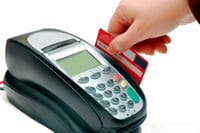 The New Credit Card Act of 2009 takes effect on February 22, 2010. To help you prepare, my blog will feature Nine Tips over the next three weeks.
The New Credit Card Act of 2009 takes effect on February 22, 2010. To help you prepare, my blog will feature Nine Tips over the next three weeks.
Tip Number Five
Have you ever received a credit card bill with a Sunday due date? Were you charged a late fee if they didn’t process the payment until Monday? That’s changing with the new Credit card Act of 2009. Your payment won’t be marked as late if it’s due on a weekend or holiday, but posted by the next business day.


